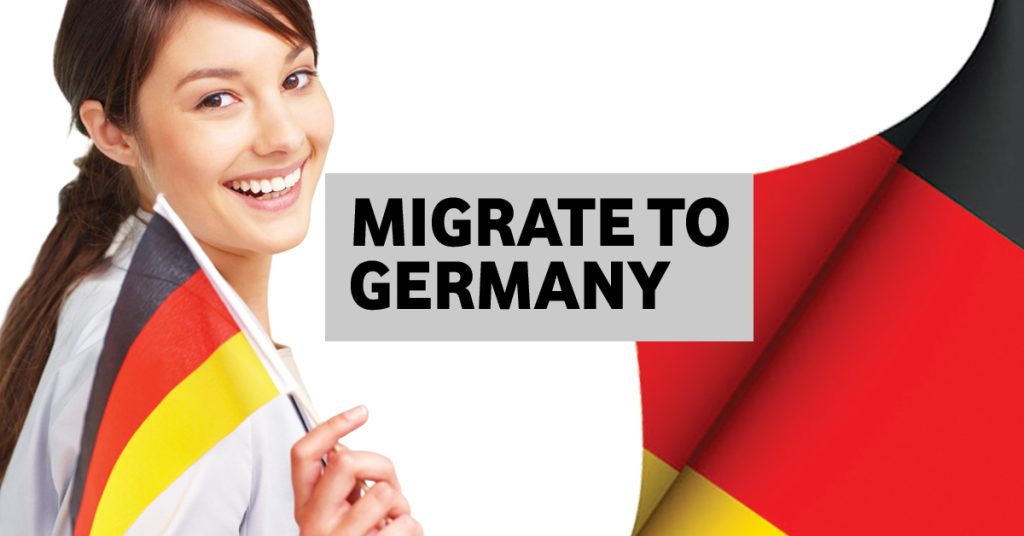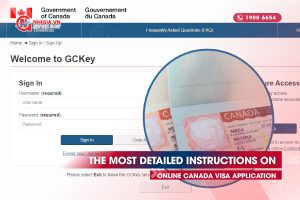
To migrate to Germany, you can look for work in Germany, or you can also study in Germany. If you have relatives in Germany, they can also help you.
Most immigrant visas require the applicant to be sponsored by a German citizen, German permanent resident, or German employer.
Migrating to Germany? As a member of the Schengen area, Germany is one of a number of countries that have abolished border checks for passports and immigration.
No one’s documents need to be checked at the border when going to or from the Schengen area, but the Immigration Police can ask to see documents at any time during travel.
Migrate to Germany
If you want to migrate and live in Germany , you can stay in the country for a long time. But the way you move may be different depending on where you come from.
If you are from the EU/EEA or Switzerland and want to stay in Germany permanently, you do not need a long-term visa (D visa). They can instead request a registration certificate.
People who are not from the EU, EEA or Switzerland need a type D visa (long-term visa) and a temporary residence permit to stay in Germany for more than three months.
In accordance with the law:
As per Article 1 of the EU Free Movement Act (FreizügG/EU),
According to Article 2 of the Free Movement Act/EU,
Article 12 EU Free Movement Act (EEA member states).
Reference to Article 28 of the Swiss Population Act.
Move to Germany as an EU citizen
Citizens of European Union Member States, EEA countries or Switzerland can move freely within the EEA. Coming to Germany and living here is possible at any time.
With a valid ID card or passport, you can stay in Germany for up to three months. No need to meet other standards. There is absolutely no visa required.
You can stay in Germany for more than three months if:
- Working, self-employed, in training or studying.
- Find a job.
- Independent with health insurance.
- Residing legally for five years with the right of permanent residence.
Germany allows free movement for your family, including non-EU/EEA/Swiss citizens. Spouses, children under 21, and any family you can help are included. Visa requirements for family members vary; see “Entry rules”. A special section about family reunions.
Fast Checking, Visa services .
Move to Germany as a Non-EU Citizen
You need a national visa (Visa D) if you want to migrate to Germany from a non-EU country for a long time. This visa allows you to work, study, visit family and live in Germany for a long period of time.
Ethnic German settlers from Eastern Europe and the former Soviet Union can directly become German citizens under different laws. Germany also had specific laws for Jewish immigration.
Citizens of Australia, Israel, Japan, Canada, South Korea, New Zealand, the UK and the US can visit Germany without a visa but will need a work permit. If they wish to work directly in Germany, they can apply for a work visa locally or before arrival.
Check the Authority of Foreigners in Person .
German Visa D
To stay in Germany for more than three months, you need to get a “long-term visa”, which is also called a “D-Visa”:
The following types of German visas:
- Study Visa: To take courses at German universities.
- Family Reunion Visa: For family members of German residents.
- Work Visa: For those who have a job offer in Germany.
- Job Seeker Visa: For job seekers in Germany .
- Visa for Visiting Scientists & Researchers: For invited scientists or researchers.
How to apply
From countries where you need a visa to enter Germany, you will need to apply for a visa and residence permit before you get there. You can also apply for a residence permit once you are in Germany, or you can do it before you arrive.
Start with Visa Navigator .
As soon as you intend to stay long-term in Germany, start applying. Visa applications may take months. Application preparation involves three steps:
The first step:
Fill out the application .
Second stage:
Use the following checklist to gather the documents required for your stay in Germany. They are all PDF files .
For:
Employ skilled professionals
- University graduate professional
- Experienced IT professional
- Study
- Professional with vocational training
- Work if the qualification is partially recognized
- River Cruise Crew
Study
Au Pairs
Volunteering, job search, vocational training .
Family reunion
- Life partner
- Parents of a German child
- Children of foreign parents
- Family of non-German EU citizens
Third step:
Jewish immigrants
Germany has special regulations for Jewish immigrants from the former Soviet Union, including information on general requirements and special conditions for victims of National Socialist persecution.
Requirements for Jewish immigrants:
- Be from a successor state to the Soviet Union (excluding the Baltic states) or have not held citizenship there since at least 1 January 2005 (excluding Estonia, Latvia and Lithuania).
- Have Jewish citizenship or ancestry with exclusively Jewish beliefs.
- Speak German at level A1 (CEFR).
- Demonstrate independence for permanent residence.
- Demonstrate the potential for active participation in the German Jewish community.
German Residence Permit
There are different types of Residence Permits in Germany based on your reasons for wanting to stay in Germany and how long you plan to stay. It is very important for you to choose the right type of residence permit. What you need to do to register, what papers you’ll need, and how much you’ll have to pay all depend on the type of permit you want.
Type of residence permit
The following types of residence permits are available in Germany:
- German Temporary Residence Permit.
- German Permanent Settlement Permit.
- German ICT Card.
- German Mobile ICT Card.
- German EU Blue Card.
- German EU long term residence permit.







